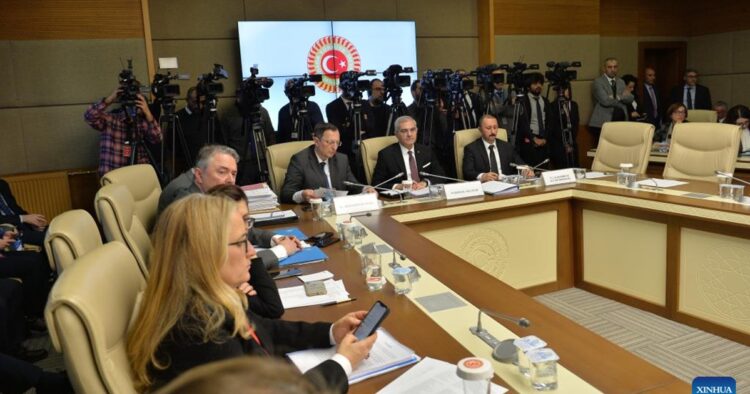After 19 months of delays and negotiations, Turkey’s parliament foreign affairs commission has given its approval for Sweden’s NATO membership bid. This move is considered a significant step in expanding the Western alliance. The commission, controlled by President Erdogan’s ruling AK Party, voted in favor of Sweden’s bid after lengthy debates, including discussions on security-related concessions demanded by Ankara from Stockholm.
The next crucial step in the process is a vote in the parliament general assembly, where Erdogan’s party holds the majority. It is expected to pass there as well, potentially within weeks. Following the general assembly vote, Erdogan will sign it into law, concluding a process that has faced delays and strained Turkey’s relations with some of its allies.
Commission head Fuat Oktay downplayed expectations for a speedy general assembly vote, emphasizing that the parliament speaker would decide on the timing. The approval received support from Erdogan’s AK Party, its nationalist MHP allies, and the main opposition CHP. However, the small Islamist Felicity party and the right-nationalist Iyi party voted against it.
In response to the commission’s approval, Swedish Foreign Minister Tobias Billstrom expressed Sweden’s welcome and anticipation of joining NATO. NATO Assistant Secretary General Boris Ruge also hailed the news as “excellent.”
However, some questions were raised by the main opposition CHP during the commission’s approval. Lawmaker Oguz Kaan Salici stated that his party sought an explanation on what had changed since the previous meeting on November 16. He expected all parties to take a similar stance in the general assembly.
Turkish Objections and Delays
Turkey had raised objections in May of the previous year to both Swedish and Finnish requests to join NATO, citing concerns over their protection of groups deemed terrorists by Turkey and their defense trade embargoes. While Finland’s bid was ratified in April, Sweden faced delays until it took steps to address Turkey’s concerns, particularly regarding the Kurdistan Workers’ Party (PKK).
In response, Sweden introduced a new anti-terrorism bill, making membership in a terrorist organization illegal. The country also worked to relax Turkey’s arms-export policies. Despite Hungary also not ratifying Sweden’s membership, Turkey was viewed as the primary obstacle to adding Sweden to NATO, especially in the Baltic Sea region.
Erdogan linked the ultimate ratification of Sweden’s NATO membership with U.S. approval of F-16 fighter jet sales to Turkey. After a recent call with U.S. President Joe Biden, Erdogan indicated that Washington was eyeing the ratification before moving forward with the fighter jet request.
While the White House supports the sale, there is no clear timeframe for the U.S. Congress to approve it, and Turkey faces some congressional opposition over NATO enlargement delays and its human rights record. Turkey’s diplomatic stance over the past 18 months has raised concerns among some alliance members, especially amid the conflict in Ukraine, as Ankara maintains relations with both Moscow and Kyiv.

















Comments